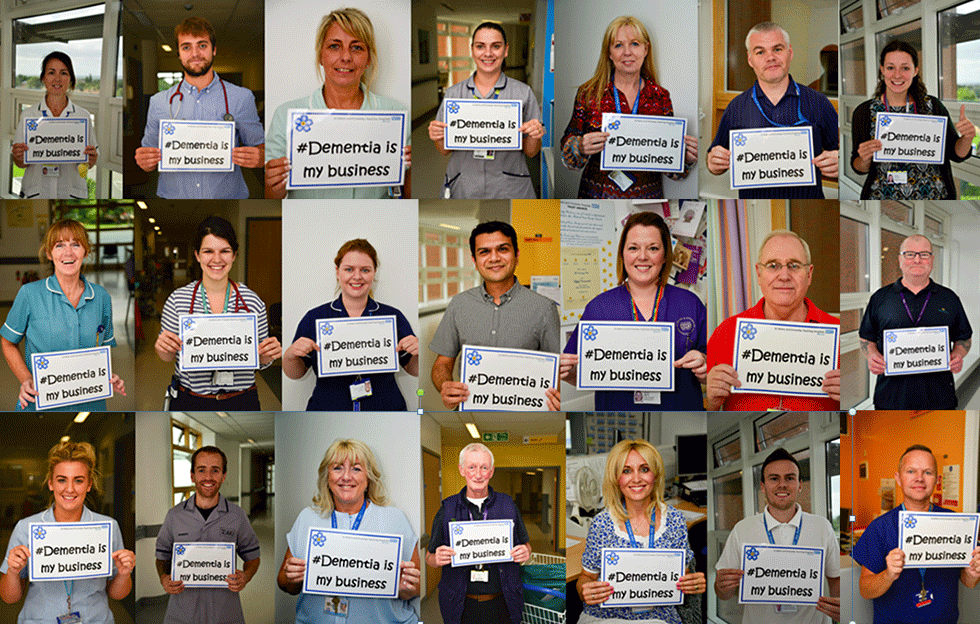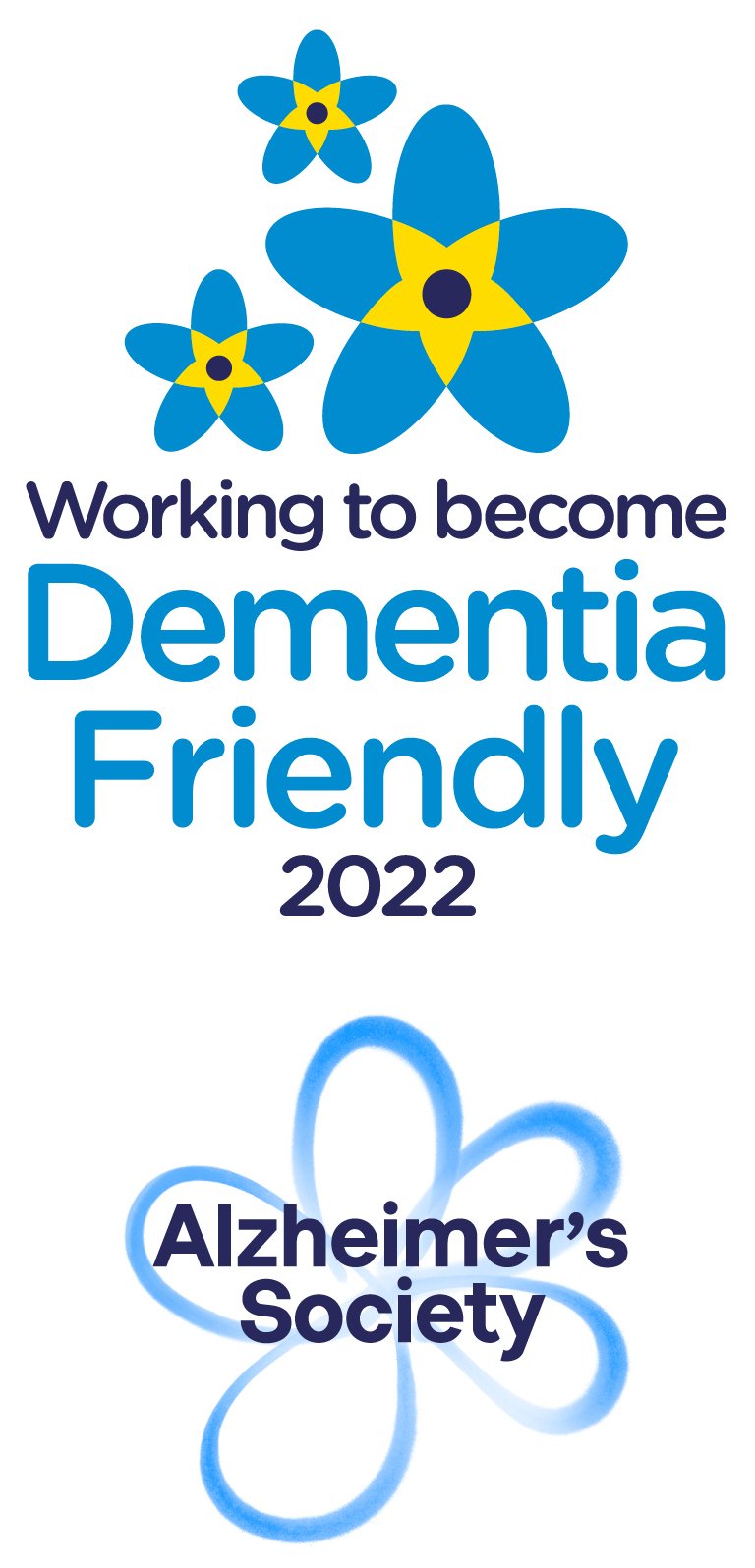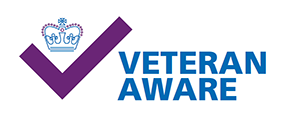Our Services A - Z - Dementia / Delirium Service
About the service
The Dementia and Delirium Team provides advice and support for patients and carers living with dementia and/or delirium across the trust, their families and carers.
Dementia is an umbrella term used to describe a range of cognitive and behavioural symptoms that can include memory loss, problems with reasoning and communication and change in personality, and a reduction in a person's ability to carry out daily activities. Common types of dementia include Alzheimer’s disease, vascular dementia, dementia with Lewy Bodies, frontotemporal and mixed dementia.
Delirium is a state of mental confusion. It is also known as acute confusion. Delirium is a common condition that can come on suddenly, or over a few hours / days. It is a sign that someone is physically unwell. It usually lifts when the condition causing the delirium is treated. Sometimes it can be prevented, but individual circumstances can make you more susceptible to experiencing delirium.
People are at risk of delirium if they:
- Are 65 or older
- Have difficulties with memory or understanding (known as cognitive impairment) or have dementia
- Have a broken hip
- Are seriously ill
The dementia and delirium team are able to provide specialised advice to parent teams concerning the care or treatment of people admitted to the hospital with dementia/ delirium/ cognitive impairment.
The Trust implements the ‘Forget me Not’ scheme, which aims to improve communication, interaction and patient experience. The ‘Forget me not’ card is suitable for anyone who may have difficulties communicating for any reason. This may include people who have dementia, learning difficulties or physical disabilities as well as people who are too poorly or frail to tell us what they want at present
Our ethos is “that good dementia care is everybody’s business”. We aim to ensure all our members of staff receive training that is both relevant and meaningful. It’s our hope that the skills they learn in training will be used and shared out of the hospital as well, as it’s only through community engagement that we can create a truly dementia-friendly place to live and work.
We support Johns Campaign. All wards and departments allow carers to remain with the person whom they care for and are welcomed as partners in care.
The campaign has also been endorsed by Medirest, who also recognise the main carer as an equal partner by offering staff concessions in the restaurants. If you are the main carer of a person receiving treatment / care from the Trust please let a member of staff know, there is lots we can do to help support both you and the person you care for.

- Location and Contact details
The Dementia and Delirium office is based on Ward 5B (Level 5) at Whiston Hospital.
The office number is: 0151 676 5253 / 0151 290 4011
- Things to consider when coming to hospital
- If you have a ‘This is me’ document, forget me not card, hospital passport or similar documents please bring a copy with you when visiting hospital. If you haven’t got one ask a member of staff.
- Have a bag prepared just in case; it can be easy to forget things in an emergency. Thing to include are day and night time clothes; consider personal items/ information that may support the person living with dementia care needs. If being admitted from a residential/ nursing home utilise the ‘red bag’ scheme.
- Please bring a list of the medications the person living with dementia takes.
- If you need reasonable adjustments making to your care to support your hospital care, please speak to the hospital staff. Alternatively, please contact the Dementia and Delirium Team directly.
- Share a patient story with us about the treatment you or the person you help care for received, or tell us about your experiences of the Trust as a carer.
- Relevant Leaflets/Documents/Links
Useful Links
John's Campaign - for the right to stay with people with dementia, for the right of people with dementia to be supported by their family carers.
Alzheimer's Society - United against Dementia. Living with dementia at any time brings challenges. Coronavirus is making daily life much harder. But you're not alone. If you need support and advice, we are here for you.
Royal College of Psychiatrists, Delerium - Information for anyone who has experienced delirium, knows someone with delirium or is looking after people with delirium.
Information Leaflets
- Support
The Dementia Guide offers information for people with dementia and their families and friends. It aims to raise awareness of dementia, as well as help people create networks and better understand the impact of the condition.
There are also links to lots of information on dementia and sources of local and national support.
- Donations
During later stages of dementia, a person with dementia hands may fidget as though agitated or searching for something to hold. The person with dementia may pull on their clothing or bedding, rubbing their hands up and down. An individual may be soothed by a sensory blanket. Comfort blankets and twiddle mitts have an assortment of sensory attachments and fabrics including, pockets, zippers and buttons. It provides a wonderful source of visual, tactile and sensory stimulation.
If you would like further information or wish to make a donation please contact the Dementia & Delirium Team
Telephone: 0151 676 5253

Page last updated on 20th February 2025







